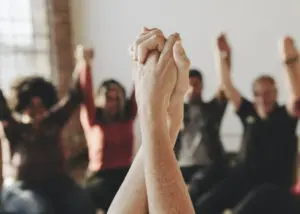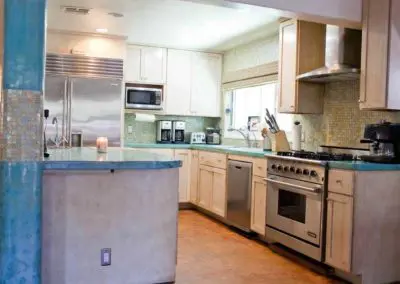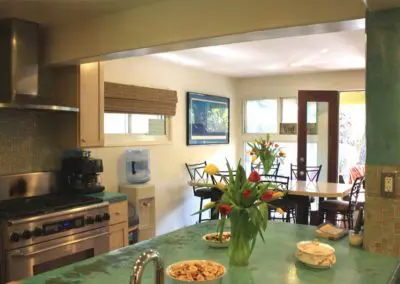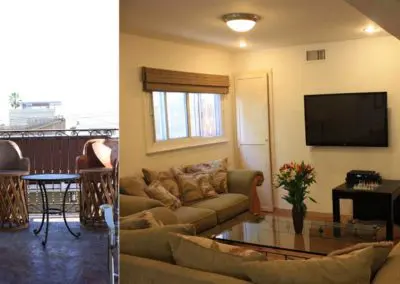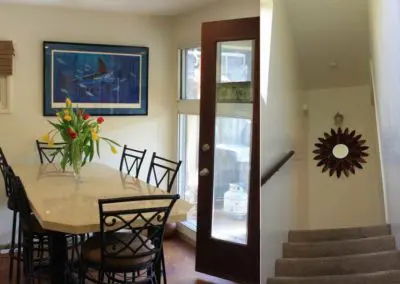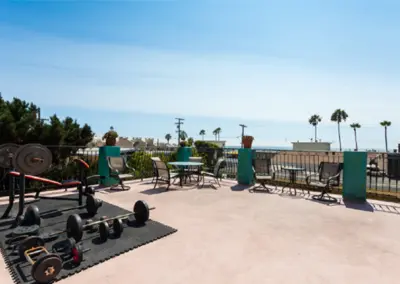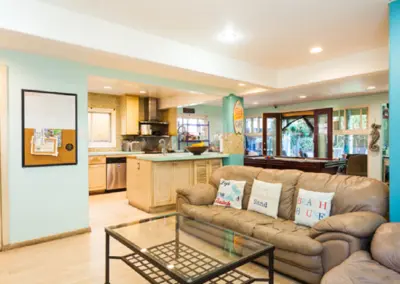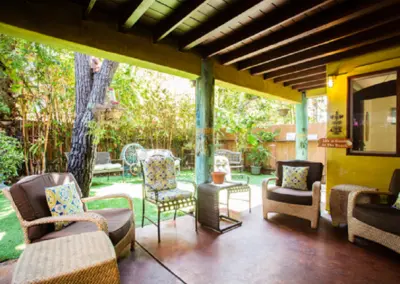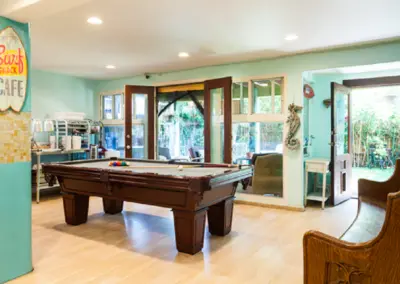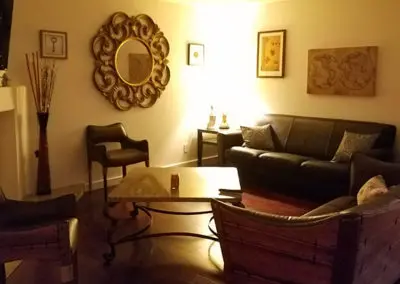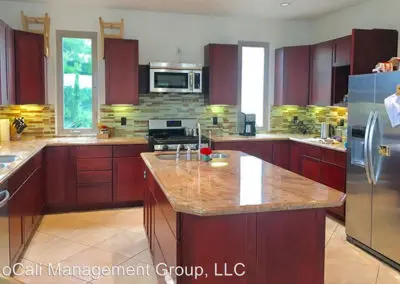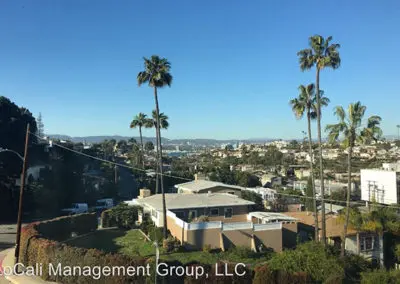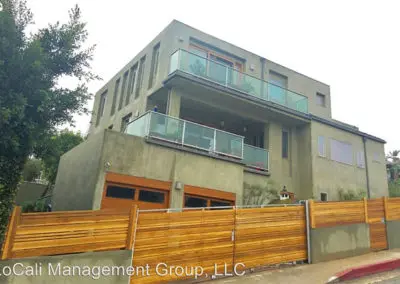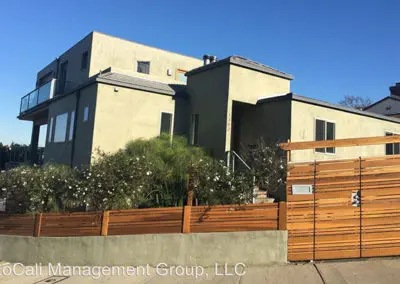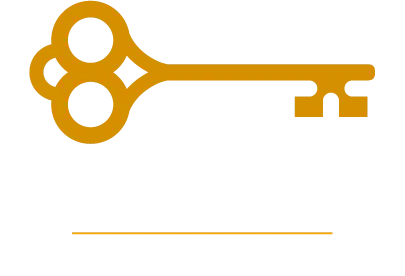Addiction Recovery Meetings
Many people don’t realize that the journey towards recovery doesn’t end when treatment does. Staying clean and sober can be a shaky and tough road but it is a necessary one. One of the ways that people stay clean and focused is through recovery meetings. Many times (especially in early recovery) a person may feel overwhelmed or insecure about returning to their regular life while staying sober.
Recovery meetings help a person stay accountable while speaking to others in the same situation. There are many different forms of recovery meetings, each with its formats and topics. No matter what kind of recovery meeting you prefer, these sessions can be a great help to staying clean. Many recovery meetings use some form of the 12-steps and typically meet every week (this varies from organization to organization).
Let’s take a look at the different types of recovery meetings and what happens in each of them. Being informed and knowledgeable on these sessions can help you feel more comfortable and committed to joining. Recovery meetings are a great way to stay sober after treatment has ended – they also continue to be used by thousands of recovering addicts every year.
What are Recovery Meetings?
Recovery meetings are peer support groups that come together regularly (usually weekly). The main goal of these recovery meetings is to help people stay sober and clean as a group. Alcoholics Anonymous (AA), SMART Recovery, and Narcotics Anonymous (NA) are among some of the most popular. AA and NA in particular are known for using the 12-step style (12 pillars that are followed through the journey).
The format and topic of these meetings depend on the organization. Some many different styles and methods are used – recovery meetings are usually based on particular areas and the types of addictions or conditions. Recovery meetings can be really useful for those recovering from addiction or alcohol abuse.
Recovery meetings can be seen as a safety net for those returning to their lives after treatment. Unfortunately, many may end up relapsing after their treatment has ended. To avoid this, recovery meetings can help you to structure your life while staying clean for years to come. With this in mind, recovery meetings are something you should commit to and stick to in the future.
Why Are Recovery Meetings Important?
Recovery meetings can be vital to staying clean during recovery. To understand this one must first know how exactly drugs and alcohol affect the brain. Many drugs like cocaine and heroin end up affecting the brain’s behavior, specifically the flow of dopamine in the brain. Dopamine controls the brain/body’s reward system. Over time a person will become addicted to the sensations of drug use, typically resulting from an overload of dopamine in the brain.
As time goes on a person may become dependent on a drug. Dependency occurs when a person experiences withdrawal symptoms when the drug is not in their system. Dependency is usually what ends up causing addiction in the long run. Addiction is also connected with negative behavioral and physical changes as well. While treatment helps a person change their behavior and overcome some of the withdrawal symptoms, sometimes this is not enough to guarantee sobriety.
This is where recovery meetings come into the picture. When a person is on their journey towards a clean and sober lifestyle, the beginning can be nerve-wracking at times. Sometimes people can feel as though they are on the verge of relapsing or feeling cravings again. Recovery meetings can be a great way to stay sober and clean one week at a time. Your journey towards sobriety doesn’t end when treatment does. You should continue practicing a healthy and clean lifestyle way after treatment has ended – recovery meetings can be a great help with that.
Having a reliable and supportive group can make a big difference during sobriety/recovery. At the end of the day, simply attending weekly meetings can help solidify a routine while encouraging a clean and sober lifestyle.
Do Recovery Meetings Work?
Addiction is a chronic disease that takes years of practice and motivation to control. There is no bulletproof way of simply ‘curing’ an addiction and becoming sober. However, with the help of recovery meetings and other resources, you can continue on the path to sobriety. While much of the success rate of 12-step programs like AA and NA are kept secret, there is no question that recovery meetings can be useful. While it may not work for some it may be a solid option for those who’d like to try. At the very least, attending weekly recovery meetings can’t harm.
Research shows that support is essential to the recovery process. Having a supportive and trusted group around you can help a person avoid relapse and old habits. Studies show that social support:
- Increases a person’s life expectancy
- Spreads more awareness about the addiction/disease
- Improves self-care techniques and overall quality of life
- Lowers morbidity and mortality rates
With this being said, it is best to use many different types of self-care and other methods during the process. Recovery meetings are not the end all say all but rather an outlet to help you stay sober. Recovery meetings may not work for some while others may find it very effective.
What Happens During Recovery Meetings?
Recovery meetings are not all created the same. There are many different organizations and styles when it comes to recovery meetings. With this in mind, there are several elements of recovery meetings that can be seen in almost all recovery meeting types. One of the main parts of all recovery meetings is that the meetings are all voluntary. No one is required to attend unless they are ordered through law/court order. You may attend as many or as few sessions as you prefer.
Many recovery meetings usually have a form of ‘chairperson’. This person is tasked with moderating and ‘running’ the meeting. They may also be in charge of unlocking the doors and setting up coffee for the meeting. Almost all recovery meeting organizations treat everyone as equals – no one is above anyone else. This is especially important when dealing with cases of addiction and sobriety. Additionally, some members are welcome to take charge in future meetings if they would like.
Many meetings begin with some sort of prayer about the program. Prayers in this case aren’t necessarily religious but they can be. The sessions also close with some sort of prayer or literature as well. Many different things may happen between these two prayers, whether it be reading literature, rewarding coins/chips, or announcing upcoming events.
The Many forms of Recovery Meetings
There are several different methods and types of formats that organizations follow. The most common of these are discussion meetings, where members share their own stories and struggles. Discussion meetings are a great way to share your own experiences while hearing the recovery stories of others in the same position. Sharing is completely voluntary and is not required. If there is a moment of silence the chairperson may call on someone in this case. Other forms include:
- Literature studies – Passages, pamphlets, or chapters of literature are read out loud before being discussed
- Speaker meetings – In these meetings, a previous member of the program shares their own story in a long presentation format
- ‘Ask it’ basket – After collecting questions from the members, the moderator picks them at random for the other members to answer.
- Topic meetings – These meetings use a central theme (related to recovery or even spiritual ideas) that are discussed as a group.
- Gender-specific meetings – As the name suggests, meetings are conducted for a specific sex group so more intimate and sensitive topics can be talked about.
No matter who you are, there is a recovery meeting out there for you. There are plenty of different styles and organizations to choose from. Recovery meetings can be a great aid during those tough moments of sobriety and recovery. At the end of the day, it is worth looking into as you transition back into your brand new life.
Most Common Organizations
Recovery meetings are used worldwide and go by many different names and organizations. There are more known organizations like Alcoholics anonymous as well as more specific gender-based organizations as well. Some of the most widely used recovery meetings include:
- Alcoholics Anonymous (AA)
- Narcotics Anonymous (NA)
- SMART Recovery
- Cocaine Anonymous (CA)
- Gender-specific programs
Start Your Journey Towards a Better Life
Recovery Meetings are a great addition to your brand new life, but how do you get to that point? After treatment, turning towards a safe and comfortable environment for a smooth transition can be extremely helpful. At Casa Nuevo Vida, we offer some of the best sober living homes in the Los Angeles area. Start your transition to a brand new life free of drugs and stress (without the worry of relapsing). Contact us today to learn more about our services and sober living homes in LA.
References:
http://peersforprogress.org/learn-about-peer-support/science-behind-peer-support/
Home Amenities
Our Playa del Rey Beach House is located walking distance from Playa del Rey’s sandy beaches and Marina del Rey’s sparkling harbor. The Playa del Rey house encourages residents to foster a sense of brotherhood during sobriety.
24/7 Support
House managers live in the community, and they’re available 24/7 to offer support and guidance. They make it their priority to ensure each resident is comfortable and making progress toward their recovery goals.
PlayStation and Wi-Fi
Wi-Fi access granted at designated periods of the day during your leisure time.
Delicious Meals
We supply delicious meals for breakfast, lunch, and dinner. We can also accommodate dietary restrictions, whether you eat kosher, vegetarian, vegan or gluten-free.
Communal Dining
The dining room is a great place to get together and share meals and support.
Weight Equipment
Focus on your physical health in the comfort of the Playa del Rey House with the in-house weight equipment.
Beach Accessories
Beach cruisers, boogie boards, and surfboards are available.
Monthly Bonfires
Come together as a group around a comforting fire.
Meetings
Weekly meetings emphasize family relationships, relapse prevention and living a modern life in sobriety through our group and 12-step meetings.
Fun Days
Fun-in-recovery days include movie nights, bowling trips, barbecues, sports events, parties and more.
Harbor Cruises
Experience the relaxation and fun of cruising around Playa del Rey by boat.
Monthly Dinner Out
Dine out at a local restaurant like Korean BBQ and experience cultural emersion while enjoying a tasty meal.
Start Thriving in Sobriety



